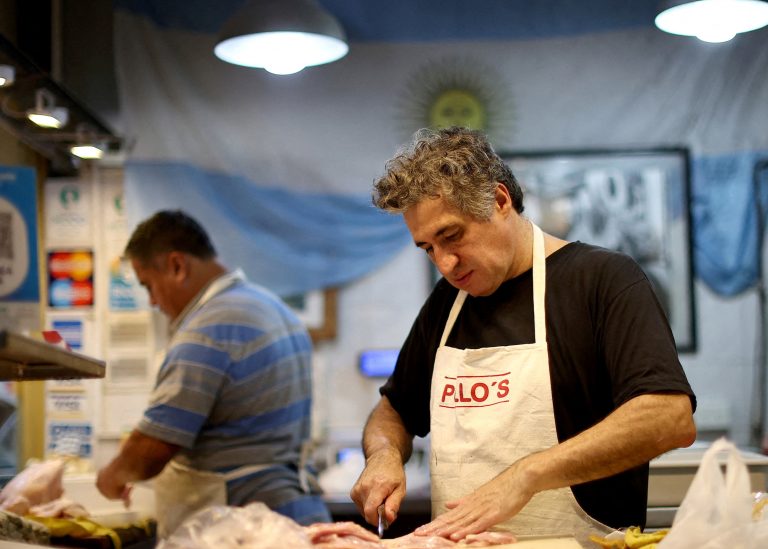Many Argentinians are struggling to make ends meet as the South American country’s currency continues to lose value despite the spending reforms of newly elected libertarian President Javier Milei.
Milei ran on a platform of revitalizing the economy by moving away from his predecessors’ left-wing policies and implementing austerity measures, but inflation continues to rise despite braking somewhat.
The Argentinian peso saw 15.3 percent inflation in February, compared with 20 percent in January. By the end of 2024 it is expected to rise by 250 percent.
In December 2023, a month after taking office, the Milei administration had devalued the peso by 50 percent.
Milei has thus far been able to boost state finances through spending cuts. However, in battling an inherited crisis, the administration has rolled out some tough measures including targeting subsidies for utilities and transport while looking to streamline welfare programs.
Success
You are now signed up for our newsletter
Success
Check your email to complete sign up
Meanwhile, ordinary Argentinians are squeezed hard as they continue to lose purchasing power.
- Argentina’s Incoming Milei Administration Rebuffs Diplomatic Overtures by Beijing
- 2021: Gated Argentinian Community Overrun by Native Capybaras
A report last month suggested poverty was nearing 60 percent from 40 percent a year earlier, putting pressure on Milei’s reform plans to show quick results as anger simmers around the country and people tighten their belts.
Milei has said March could be “complicated”, and signals in the economy have looked bleak, with tumbling sales, activity and production, even as the austerity measures have squeezed pensions, state salaries and public investment.
“It’s very severe,” said Sandra Boluch, a fruit and vegetable seller in Buenos Aires, Argentina’s capital. “People are taking less amounts, their wallets are really hurting.”
She reported seeing people scavenging in her business’ garbage for any edible food.
“We have some containers in the back where the garbage is disposed of and when you go with a box, you see 20 people coming up to you to see what they can take as a plate of food to their table,” said Boluch, adding it had happened before the Milei administration, but she was now seeing many more people rummaging in the trash.
“The impact of the cost of food is just brutal,” said Ines Ambrosini, a 62-year-old who tries to shop in wholesale markets to find deals.
“Everything costs a lot of money, the food, the fruit, the vegetables, the meat, the dairy products. Coming to these markets helps you take care of your wallet a little more.”
With reporting by Reuters.













